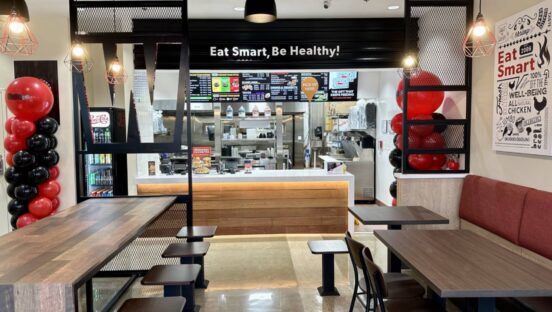Burgerim may long serve as a cautionary tale in the franchising industry moving forward.
The Israel-based burger brand grew fast, opening locations across the country with striking swiftness. But this expansion came to a screeching halt at the end of 2019.
In December, the company served notice that it was considering bankruptcy, and owner Oren Loni fled the country. After many Burgerim franchisees suffered financial calamity from their investments in the chain, this February, U.S. Senator Dianne Feinstein requested that the Federal Trade Commission investigate Burgerim for deceptive sales practices.
The burger chain’s breakdown offers a host of lessons for prospective franchisees—particularly when looking for red flags in potential brands.
“Rotten inside”
Andy Wiederhorn, CEO of FAT Brands, says his company explored buying Burgerim a year ago but passed because of a variety of worrying factors. In particular, he says, Burgerim wasn’t collecting royalties from franchisees and had “a huge list” of lease guarantee obligations and refund obligations.
In the face of such shortcomings, Wiederhorn says, the brand needed sky-high average unit volumes. That wasn’t the case. Instead, only a few stores were performing well, and even though certain units opened with eye-catching sales, those sales weren’t being sustained.
“The stores weren’t performing,” Wiederhorn says. “Out of about 200 … somewhere between 10 and 20 had any likelihood of reasonable performance. There was a lot of hype, but when you peeled back the onion, it was just rotten inside.”
For potential franchisees doing their due diligence, Wiederhorn says Burgerim neglecting to collect a royalty from franchisees is a red flag. The chain’s willingness to guarantee franchisees’ leases and offer of a refund should franchisees not find locations is also a warning sign. To take precautions against hidden issues like these, prospective franchisees should investigate a brand’s already-open stores, he says, and speak with existing franchisees.
“What marketing is being done on behalf of the brand?” Wiederhorn says. “What are the average unit volumes? What’s the payback period? What’s your sales-to-investment ratio? All these are key questions.”
Joel Libava, a franchise consultant known as The Franchise King, says franchisees should be wary of seemingly low barriers to entry. For instance, Burgerim’s website didn’t list the necessary financial qualifications for potential franchisees, which is highly unusual, especially for a quick-service restaurant.
“It’s like, ‘Wait a second, does that mean that, if I’m breathing, I can buy this franchise?’” Libava says.
Fast growth could be too good to be true
It’s been reported that Burgerim sold at least 1,200 licenses to operators in 40 states, but many weren’t able to open a store or lost money if they did. Overall, Burgerim has more than 200 locations, but around 100 locations have closed. The chain’s early explosive growth rate should have sounded a cautionary note for potential franchisees.
“Any company that would sell that many franchises that quickly and not have a massive, massive team already [in place] is setting itself up to fail,” says Brady Lee, president of Accurate Franchising. “There’s no way that you could support opening up that many locations, because finding locations in itself is difficult. … It takes a long time to build that team and that infrastructure.”
Libava seconds Lee’s advice, and says that huge volume growth in the first two years is a warning sign. While the hype is understandably alluring, inexperienced franchisees are the ones most likely to get caught up in fast-growing, “hot” brands.
“When you see a brand that’s growing, it’s exciting, and us humans tend to let our emotions get in the way of things,” Libava says. “It’s OK to be excited, but don’t skimp when you do the research.”
Wiederhorn says the lack of restaurant franchise experience in Burgerim’s ownership was a point of concern.
“Clearly, their sales organization was off the charts, but this thing was a sales machine without operational support and the financial wherewithal to support the franchisees,” he says.
Turning the disaster around
After the dust settled on Burgerim’s recent blow-up, franchisees were left to pick up the pieces. Libava says that those who are still Burgerim franchisees—even those with successful stores—should consult a franchise attorney to see what their options are going forward.
Wiederhorn advises Burgerim franchisees with existing stores to consider seeking out other franchisors. “You’ve already built a restaurant, you have a lease obligation, so see if there’s a direction you can pivot to that works for you,” he says.
FAT Brands has reached agreements with about six franchisees to convert their stores, and is in discussions with approximately a dozen more. Those select Burgerim locations will convert into one of FAT Brands’ concepts—Fatburger, Elevation Burger, Yalla Mediterranean, Hurricane Grill & Wings, or Buffalo’s Express. The transformation process for the former Burgerim units is fairly straightforward, and Weiderhorn says other brands can do the same.
“You just feel bad for the people affected,” he says. “These are all mom-and-pop operators. They’re not big multiunit franchisees. I’m sure many of them have borrowed money, signed leases, made personal guarantees. … They’re suffering here.”







